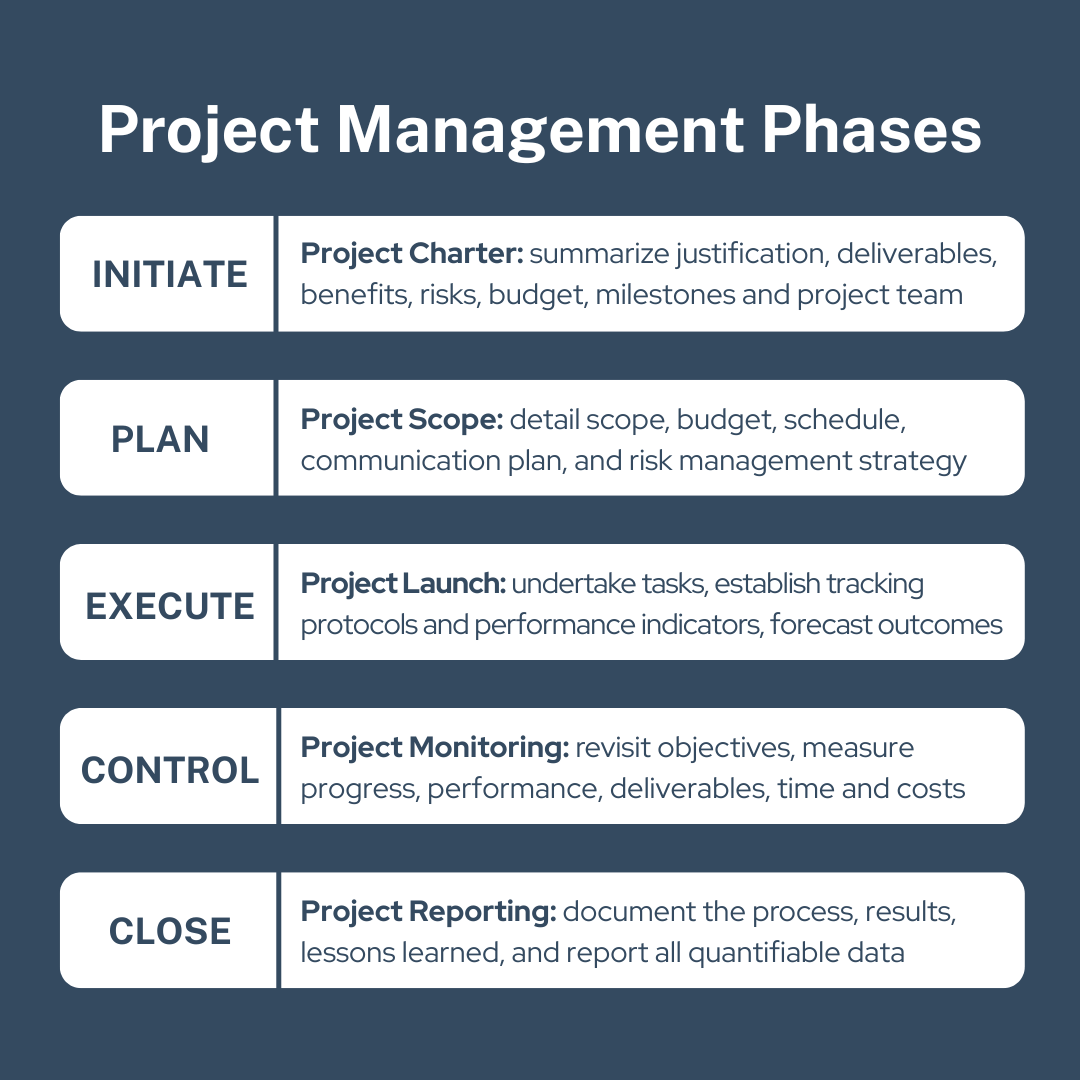A good project management process is necessary if you want to support your team in reaching short and long term goals, and design and deliver excellent programs.
A good process will help keep the team organized and help them to work more efficiently.
A project is defined as an event or an endeavor with a specific beginning and end date. A successful project must be on-time, on budget, and result in deliverables (product, service, or result) as defined by a detailed scope of work.
Examples include: creating a new program, organizing an event, executing a fundraising campaign, or introducing a new membership management system.
A project manager should be assigned to make sure that the process is followed, that the team stays on track, that tasks are completed on time, and that the project stays within budget. There are lots project management tools available, but fundamentally you’ll want to begin with a Project Charter and decide on a simple way to list and track project data.
Use this Project Charter Template to define project objectives, scope, and required resources.
Then choose an application that will allow you to:
See all tasks, deliverables and deadlines with start and end dates
Track team member’s tasks and time spent, and project costs
Share this information with the entire team
As you are designing and executing your plan, be sure to:
Set SMART goals to develop a realistic project plan. SMART goals are Specific, Measurable, Achievable, Relevant, and Time-Bound.
Track Data from the very beginning and throughout the projects life span. You want to be able to evaluate and report on progress, performance, deliverables, time and costs.
Communicate expectation, progress, and risks and be available to support when necessary.
Project Management Phases
INITIATE: Project Charter
summarize justification, deliverables, benefits, risks, budget, milestones and project teamPLAN: Project Scope
detail scope, budget, schedule, communication plan, and risk management strategyEXECUTE: Project Launch
undertake tasks, establish tracking protocols and performance indicators, forecast outcomesCONTROL: Project Monitoring
revisit objectives, measure progress, performance, deliverables, time and costsCLOSE: Project Reporting
document the process, results, lessons learned, and report all quantifiable data


